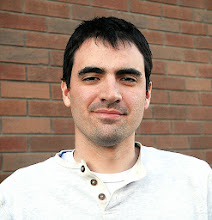A few questions with Gene Michael
TAMPA, Fla. – Gene Michael has
just about done it all with the Yankees. He’s played in their system, managed
the team twice, and was their general manager twice. Currently, he’s a senior
vice president and special adviser with the team, and can quite often be found
in the stands at Arm & Hammer Park.
The Trentonian caught up with him
at Steinbrenner Field before Thursday’s game with the Twins and asked a few
questions about how things have changed in the decades since he first started
evaluating players.
JN: Since you started doing this,
how has player evaluation changed?
GM: The more games you see a
player, the better off I think you are. You always look for the tendencies, and
if you’re doing advanced scouting, you’re looking for tendencies on how to pitch
them, how to play against them. If you’re doing player evaluation, you’re
looking for the assets of a player. In other words, how much he can help your
team or how valuable he is. Those are the things you look at, basically.
You look at the arm, what kind of
runner (he is), what kind of power. You grade all these, but then you have to
look at the numbers that they put up. That means a lot. That’s a big indicator.
I like players that take a lot of pitches at the plate. I like players that
walk a lot. High on-base, naturally, is a huge thing. Slugging percentage is
another one. You add them up and get the OPS. That’s important, to add up the
on-base and the slug. That tells you a lot about the value.
Then you look at players to find
out, if you can guess at it and (your view) tells you enough, what kind of
concentration they have. Can the play in New York? That’s a big thing, and you
never know for sure. That’s for the players.
Then for the pitchers, you look
at the numbers. Those are very important. Then you look at the durability. You
look at what kind of ballpark they were pitching in before. That’s the same
thing with hitters – you get your hitters out of pitchers’ parks and get your
pitchers out of hitters’ parks. That’s a big thing.
You always look at how you think
they’ll do in the future, and then you look at it and see if you can guess at
it intelligently and see if they can concentrate deeply. That’ll tell you
something (about) if they can play in New York.
JN: What kind of measure do you
use to gauge whether a player can concentrate in New York?
GM: It takes time. If you look at
a player and you watch and see how he reacts – I think I could look at
Youkilis, and I’ll just go out on a limb and say he can play in New York. He
played well in Boston. That helps you. I just watch his concentration. He has
big concentration. He can play anywhere.
JN: Let’s take it the other way.
Say you’re watching Player X. What would be a sign that he couldn’t concentrate
in New York?
GM: I don’t like to say, but I
think of players who look like they’re not concentrating in the dugout. They
look like they’re not necessarily concentrating when they’re on deck. Players
who are in the bullpen who are watching the game intently (can make it). I read
into some things I probably shouldn’t read into them with, but I do it anyway.
It takes time. I think it takes a little time to watch a player. It’s important
to big media markets to get to understand this and to see it, and you can’t
always be right.
\We’ve been fortunate with the
players we’ve had over the years. We’ve had some failures with players that
didn’t have concentration, but I always look back and I remember Greg Maddux.
He could have played anywhere. He didn’t choose New York. He didn’t come with
us, but he should have. He’s a player that could have pitched anywhere.
JN: We talked a bit ago about
stats. Which stats have you come to weigh more heavily over the past few
decades doing this?
GM: All of it. How they handle
the pressure. You can see them coming. You could see Cano coming, but anyone
who could envision he was going to be as good a hitter as he’s become isn’t
being quite truthful. I thought he would be a big leaguer, and I thought he had
a nice stroke, but you didn’t know if he was going to develop the kind of power
he developed.
I saw concentration in Derek Jeter when Derek Jeter was young. I
saw it when he didn’t have it, and I saw it when he did have it. And I saw him
when he was at Greensboro when didn’t have big concentration and he made 56
errors in one year, but I relate back to that because I made 56 errors in one
year, and I remember I had no concentration. Derek didn’t have it back then,
but Derek improved vastly over the next year and a half.
 RSS
RSS


0 Comments:
Post a Comment
Subscribe to Post Comments [Atom]
<< Home